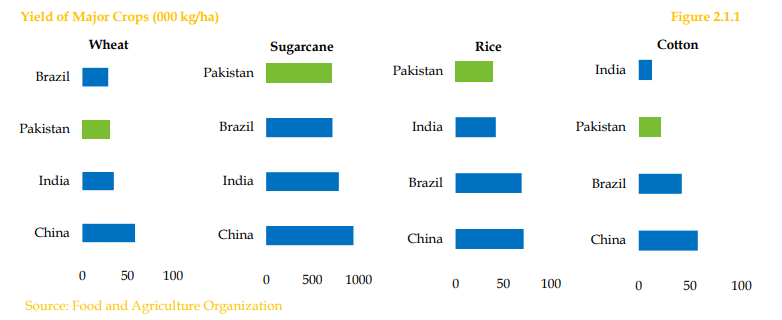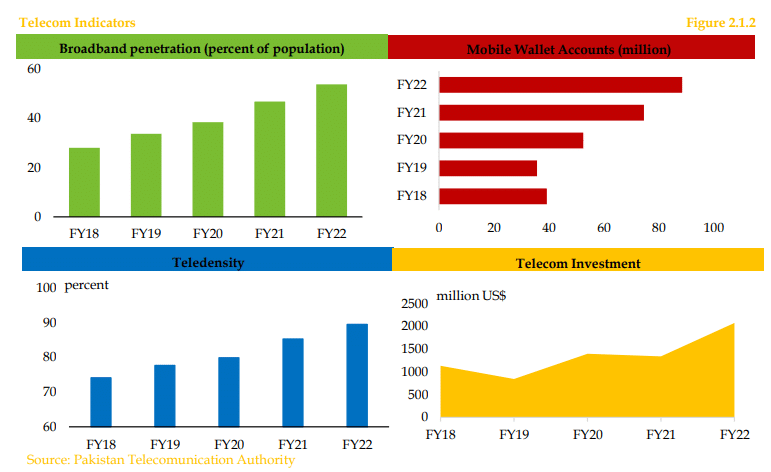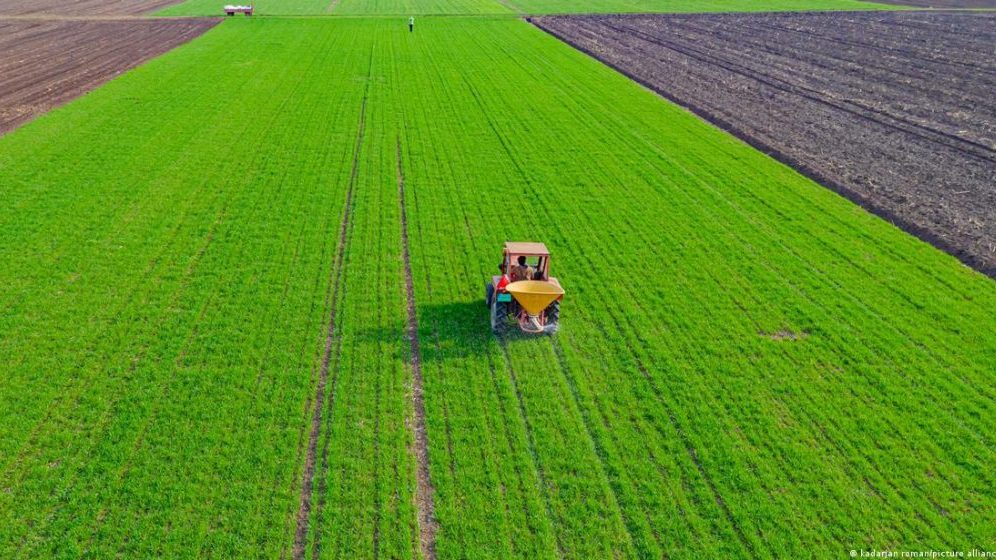The State Bank of Pakistan (SBP) has emphasized the crucial need for digitization and information access for farmers in its its Annual Report on the State of Pakistan’s Economy.
The Agriculture Sector Growth deaccelerated to 1.6 percent during FY23 as droughts during the early season were followed by heavy monsoon flooding during July-Aug just before harvesting of Rice and Cotton crops and output of both crops declined by 41 percent and 21.5 percent respectively.
But the decline in Cotton and Rice was compensated by 2.8 percent and a 5.4 percent rise in Sugarcane and Wheat production but 3.8 percent growth in the Livestock sector remains the primary contributor in keeping the sector afloat.
Surface water availability was 21.4 percent lower in FY23 compared to FY22 but the availability remains erratic throughout the season as drought conditions during April-May were followed by heavy monsoon flooding. The report states that these manifestations of climate change pose serious challenges to agricultural productivity.
Credit availability witnessed a growth of 25.2 percent to Rs. 1.77 trillion during FY23 compared to just Rs. 1.41 trillion during the previous year primarily due to rising production loans & corporate farming, increase in land rents, adoption of agricultural credit scoring by banks and introduction of champion bank concept and the implementation of risk mitigation by the State Bank.
Acknowledging the evolving landscape of agriculture towards knowledge-intensive practices, the report underscores the challenges faced by farmers, including limited access to information, financial services, and markets.

The report compares Pakistan’s agriculture productivity of major crops with nearest competitors including China, India and Brazil where Pakistan stands lowest. The report also highlighted the transformative potential of Information and Communication Technology (ICT) tools in addressing these challenges. Mobile phones, sensors, and satellites are identified as key elements in making vital information accessible to farmers, contributing to higher productivity and reduced operational costs.
Digital Solutions Transforming Agriculture Worldwide
Drawing examples from Kenya, India, and Rwanda, the report showcases how the integration of ICT in agriculture has significantly enhanced yields. Mobile apps and sensor technology, such as Plantix in India and WeFarm in Kenya, provide farmers with real-time information on weather conditions, expert advice, and market prices. These innovations have proven instrumental in disease detection, pest control, and yield estimation.
Reports cite that price discovery apps in Niger have reduced the search costs and differences in prices by 50 percent and 20 percent respectively while information access raised the yields by 50 percent in Ghana.
The adoption of ICT tools, such as soil health cards in India and smart irrigation practices in Vietnam, has demonstrated tangible benefits. Soil health cards, created with GPS-collected soil samples, have reduced chemical fertilizer by 8-10 percent and increased yields by 5-6 percent while In Vietnam, smart irrigation practices enabled by ICT tools saved 15-20 water resources.
ICT-enabled solutions have the potential to connect farmers with financial services and markets. In China, millions of online shops run by rural farmers highlight the transformative impact of accessing new markets. The provision of information to farmers via extension services has generated additional income and reduced spending on inputs.
In addition to information access, ICT tools can enhance farm productivity by providing easy access to mechanization services. Platforms like Hello Tractor, operational in fifteen African countries, connect tractor owners with farmers seeking tractor services.
Pakistan’s Position and the Way Forward
The report highlights encouraging indicators like rising broadband user base, teledensity, mobile wallets and telecom investments which can serve as the bedrock of digitization in the agriculture sector.

Several startups are making strides in leveraging ICT for agriculture. Bakhabar Kissan, Ricult, Farmdar and Growtech are leading among those providing advisory and finance services to farmers. However, challenges such as low literacy rates and a lack of digital skills have hindered the effective utilization of these tools.
The report emphasizes that easy access to digital advisories and marketplaces significantly lowers search costs for farmers. Examples from rural Niger and Ghana illustrate how mobile phones have decreased search costs, narrowed price differences, and increased yields. With 25 percent of damages in agriculture attributed to extreme weather, ICT-based advisories are positioned as essential tools for better preparedness.
Despite its lag behind other countries in crop yields, Pakistan has the opportunity to capitalize on its expanding ICT sector and growing teledensity. To fully harness the potential of ICT in agriculture, the report recommends improving digital infrastructure, promoting digital literacy, and fostering public-private partnerships.





















